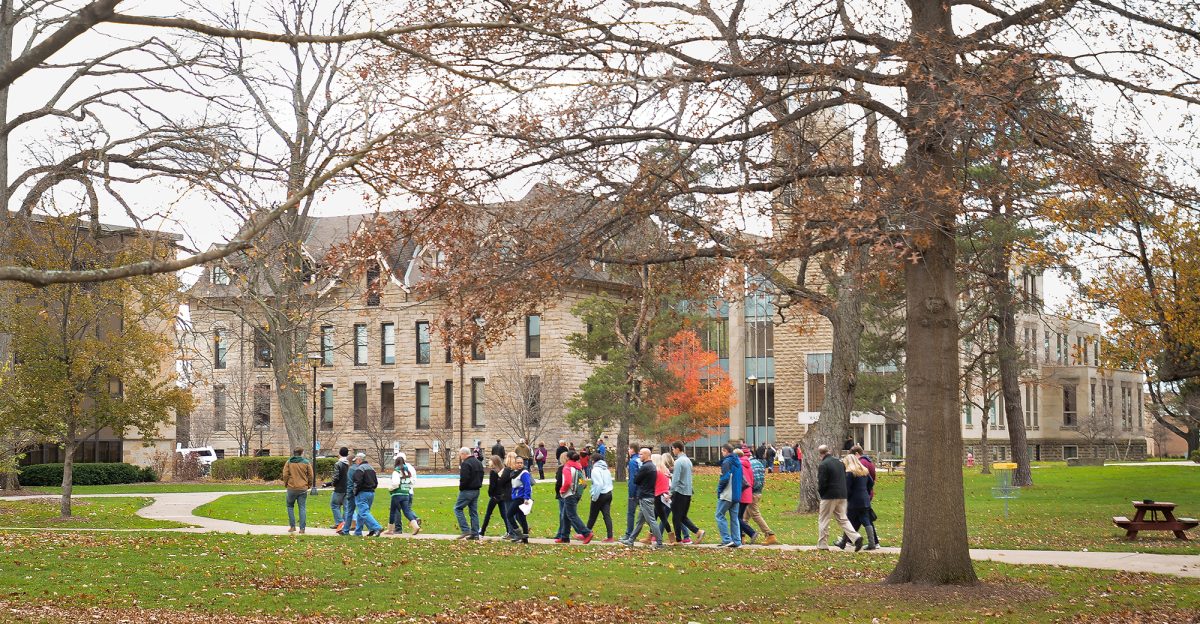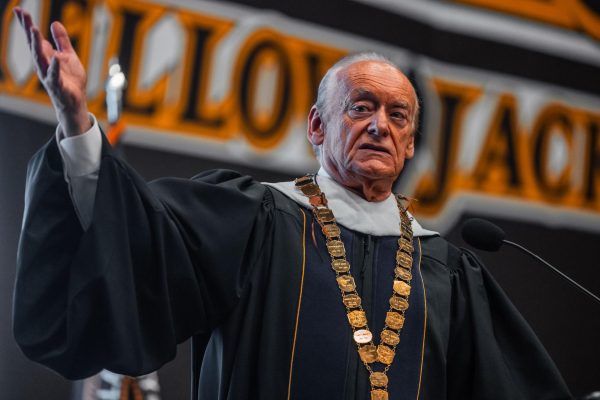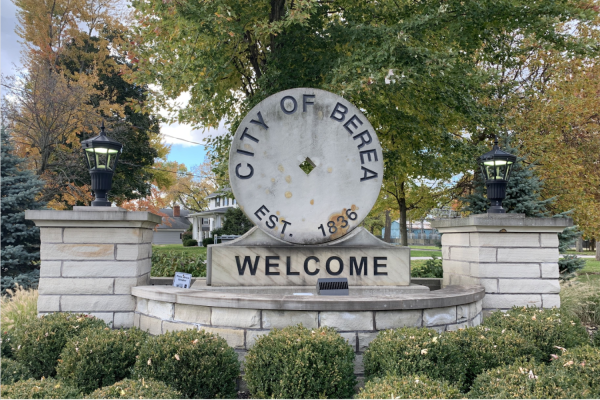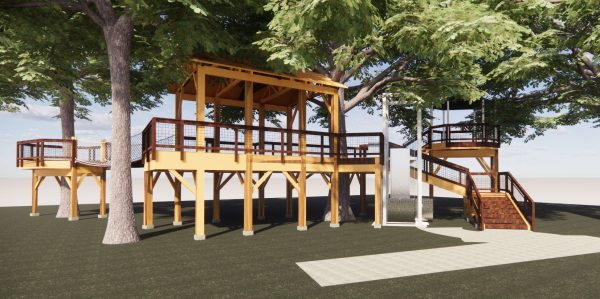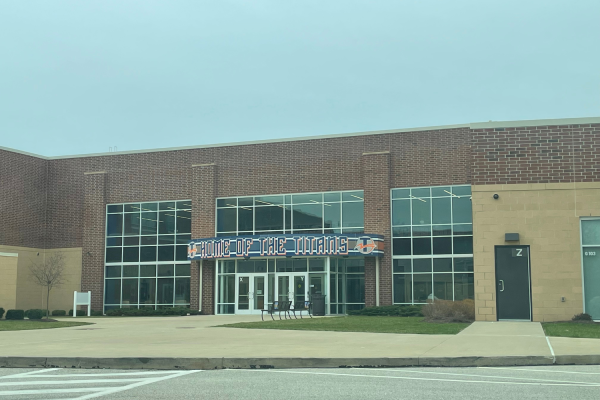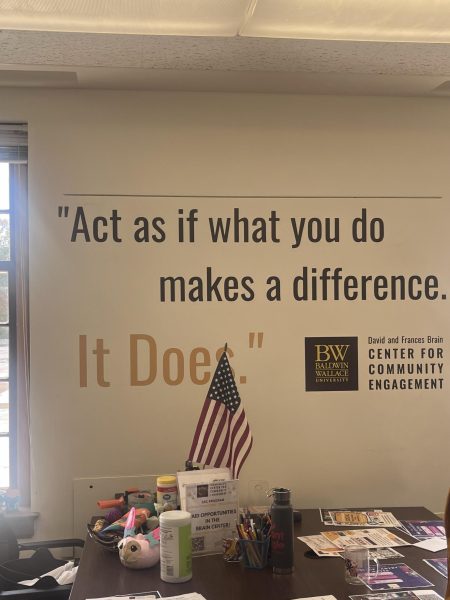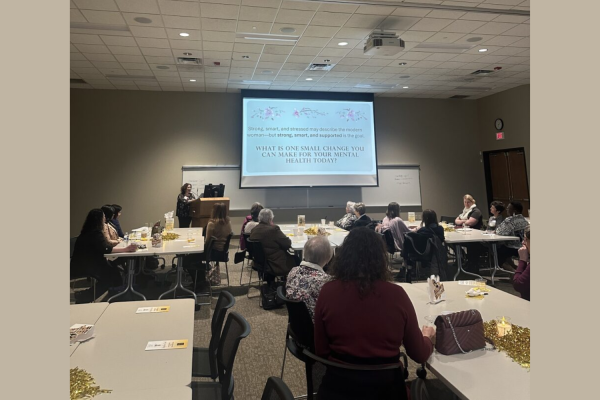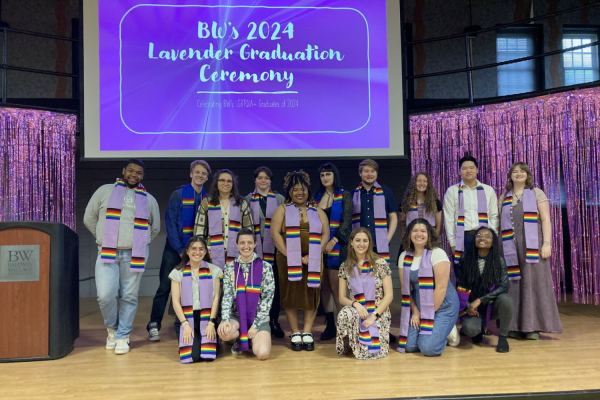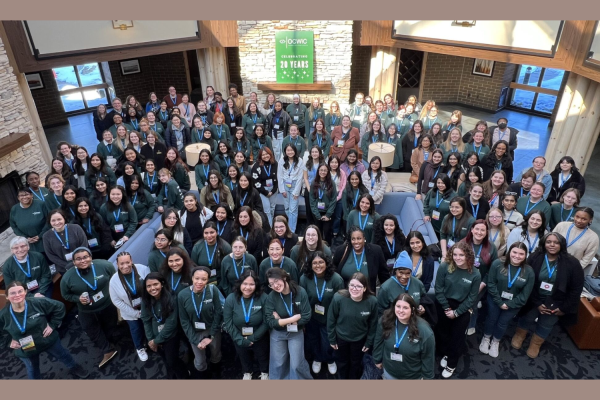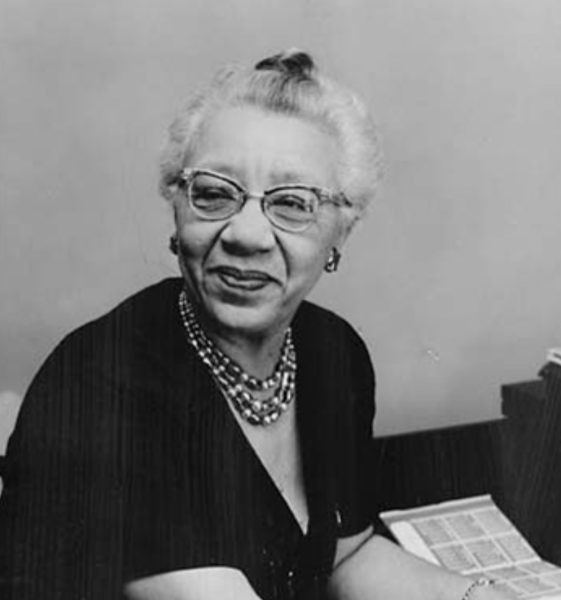Campus Celebrates Environmental Awareness with Earth Week Festivities
This earth week, students at Baldwin Wallace were encouraged to get more involved in sustainability on campus and their everyday lives. From April 19-23, students had the opportunity to participate in games, crafts, a bonfire and hikes in the Metroparks to learn more about sustainability.
Professor Jill Fleisher, associate dean for social sciences, guided the planning of the earth week events with her environmental sociology class to create a student planned, run and enjoyed earth week.
Committees of students, led by student coordinator Rowan Rindfleisch Huntley, a sophomore environmental science major, were required to contribute to one aspect of earth week. Some students organized events like the earth week carnival, some created games, a few played live music for the events and one group was responsible for promoting the events.
Baldwin Wallace is conveniently located near the Metroparks, providing students with a great place to get away from school and appreciate nature. Earth week embraced this by planning guided group hikes to encourage students to spend more time outside.
The purpose of holding earth week events was not only to educate students on the environment but also to bring students together during the busy time of the year for some fun and relaxing activities that highlighted the importance of environmental awareness. All the events focused on aspects of sustainability, nature or simple actions people can implement to create an eco-friendlier lifestyle.
“The goal is environmental education, to connect people with things they can do. The course I teach has a lot of macro ideas about how we make society more sustainable and how we combat climate change. The carnival is about what individual students can do,” said Fleisher.
Climate issues are systemic, and they cannot be solved simply by individuals implementing changes to their lives; however, it makes a difference and can direct us towards more significant changes. These activities lead students to see the connections between human and natural systems while building positive community actions and recognizing that macro-level changes are necessary to create lasting changes.
“Our environmental problems don’t start at the individual level, but we want to educate students to show them that they can live cleaner lives pretty easily by recycling, understanding your carbon footprint and finding ways to repurpose common items like plarn (yarn made from plastic),” said Huntley.
There are many ways for students to get further involved with sustainability on campus. One of the ways is to participate in the Students for Environmental Action club. The club routinely meets to discuss sustainability on campus.
The Exponent is looking for financial contributions to support our staff and our newsroom in producing high-quality, well-reported and accurate journalism. Thank you for taking the time to consider supporting our student journalists.





